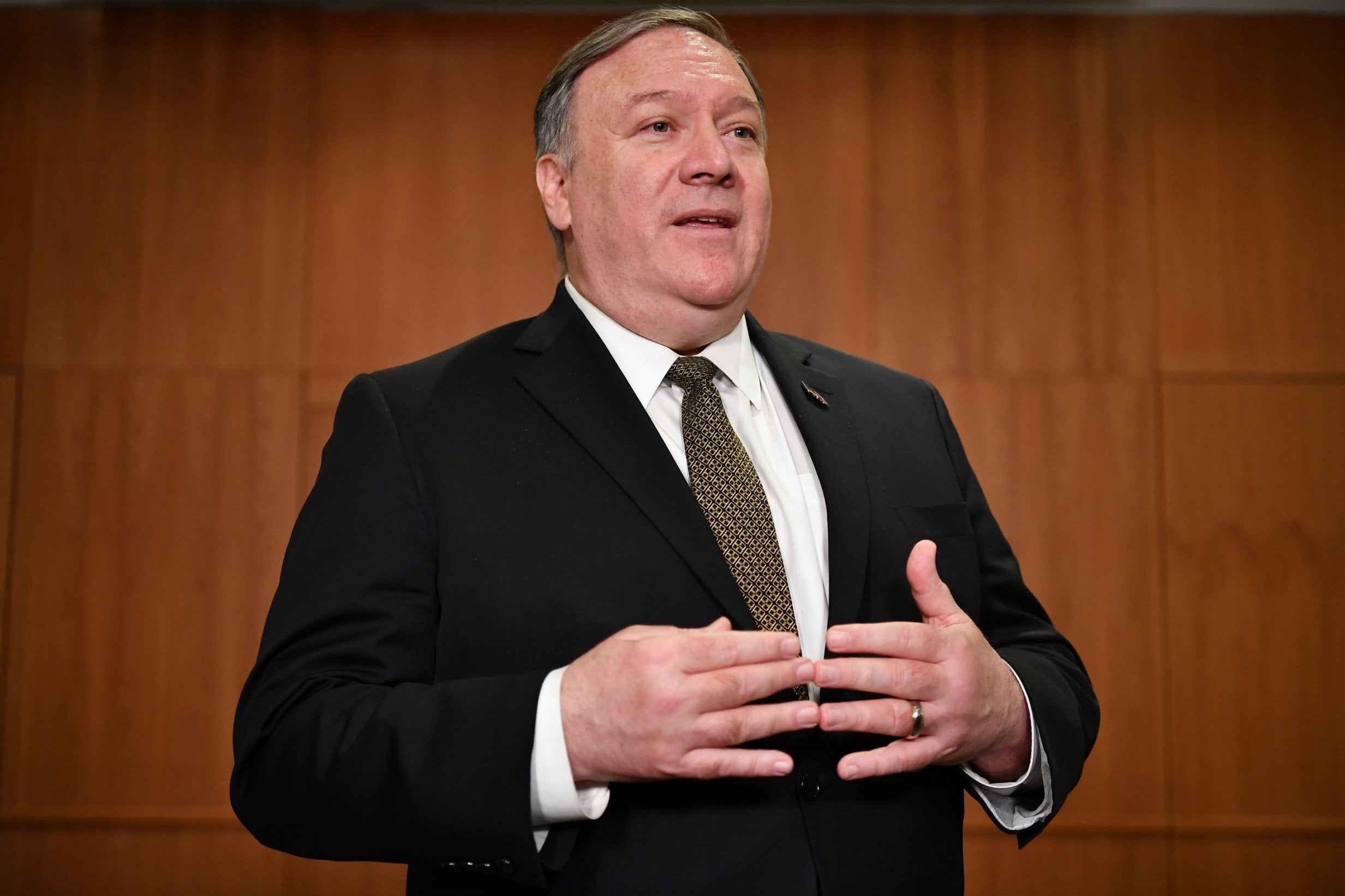Mike Pompeo praises the effects of climate change on Arctic ice for creating new trade routes
The Arctic has lost some 95 per cent of its oldest ice in the past few decades

Secretary of State Mike Pompeo has praised the effects of global warming for cutting the time it takes to trade between Asia and the west, during a speech before an international group.
Mr Pompeo said during his speech before the Arctic Council Ministerial Meeting in Finland on Wednesday that melting Arctic ice caps present “new opportunities for trade”, but did not discuss the dangers scientists say climate change presents for the world’s population.
“Steady reductions in sea ice are opening new passageways and new opportunities for trade,” Mr Pompeo said. “This could potentially slash the time it takes to travel between Asia and e West by as much as 20 days. Arctic sea lanes could come before — could [become] the 21st Century Suez and Panama Canals.”
He continued: “And its centre piece, the Arctic Ocean, is rapidly taking on new strategic significance. Offshore resources, which are helping the respective coastal states, are the subject of renewed competition.”
The comments came after news broke that the US had sought to remove references of climate change from a joint statement with the Arctic Council, and as new reports have warned of the dire threats posed by global warming caused by greenhouse gasses.
Penguin habitats threatened by climate change
Show all 9Among those risks are reduced Arctic ice volume, which leads to desalination of the world's oceans, and to rising sea levels.
Other concerns are newly printed data showing that Arctic ice is at record low levels, and that the Arctic has lost 95 per cent of its oldest ice to global warming in recent decades, according to the National Snow and Ice Data Centre.
In addition, a new study published by the United Nations’ Intergovernmental Science-Policy Platform on Biodiversity and Ecosystem Services released this week found that one million of Earth’s eight million species are threatened with extinction by humans, who are driving global climate change impacts in addition to consuming an ever growing portion of the world’s natural resources.
Subscribe to Independent Premium to bookmark this article
Want to bookmark your favourite articles and stories to read or reference later? Start your Independent Premium subscription today.

Join our commenting forum
Join thought-provoking conversations, follow other Independent readers and see their replies